Why Second-Hand Clubs Are The Sustainable Choice
We outline the environmental benefits of buying pre owned golf clubs versus brand new ones


It’s probably fair to say that most of us aren’t thinking about the environment when we buy a new set of golf clubs. Front of mind when we order a brand-new set of sticks is how they’re going to look and feel, and how they might just take our game to the next level.
However, given the rising cost of new golf equipment, more golfers are buying pre-owned clubs. Even if consumers aren’t necessarily thinking about their carbon footprint when they do so, every time used clubs are purchased – as opposed to new ones being ordered and shipped halfway across the world – it’s a positive for the environment.
As Dean Cracknell, Head Of Marketing, golfclubs4cash, Europe’s largest retailer of second-hand golf equipment, explains, buying second-hand clubs is the sustainable and eco-friendly choice that “promotes the benefits of reducing waste by reusing and recycling”.
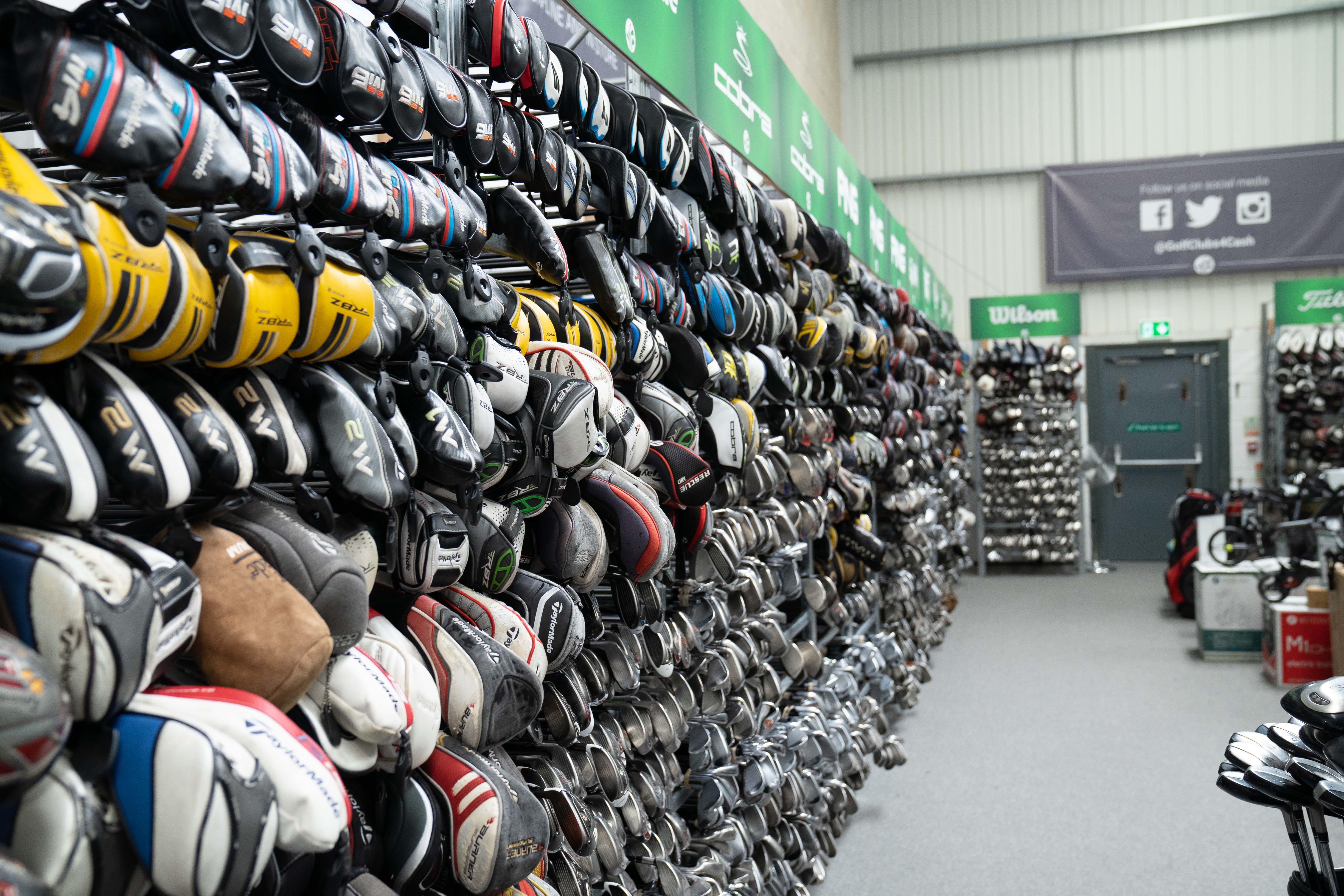
“The second-hand marketplace is more sustainable because it keeps golf equipment out of landfill,” he says. “We are extending the life of golf equipment by repurposing them and reselling them. By putting products back into circulation, we reduce the need for future manufacturing. These combine to give us a significant carbon emission saving.”
We have, at the risk of sounding like we are giving a lecture, become a throw away society, and it’s rather depressing to think of our old golf gear sitting in the ground, where it can take hundreds of years to degrade. It’s unrealistic to expect golfers to stop buying anything new, but we could all be a little more eco-conscious and aware of how we can minimise our impact on the environment.
Landfill waste

Most of the carbon impact of golf clubs comes from when they are first manufactured. First there’s the mining and extraction of materials, then comes the manufacturing process, followed by the transportation, with many clubs travelling thousands of miles before they end up at our door.
No one understands the impact this has on the environment more than golfclubs4cash. After a study in 2022, the company was able to show that it had contributed to a saving in carbon emissions of 4,158 tonnes, corresponding to over 14 million road miles – the equivalent to removing over 2,000 petrol cars from the road over a 12-month period.
Get the Golf Monthly Newsletter
Subscribe to the Golf Monthly newsletter to stay up to date with all the latest tour news, equipment news, reviews, head-to-heads and buyer’s guides from our team of experienced experts.
“There are a lot of misconceptions around what happens when golf clubs get thrown away,” adds Cracknell. “The reality is that it costs a lot of money to strip down complex composites and high value materials such as titanium, so in most cases, they simply end up in landfill.”
With over 25,000 used golf clubs listed online on its shelves at any one time, and approximately 1,000 being added each day, that’s a lot of steel that’s being prevented from filling up landfill sites.
Removing plastic
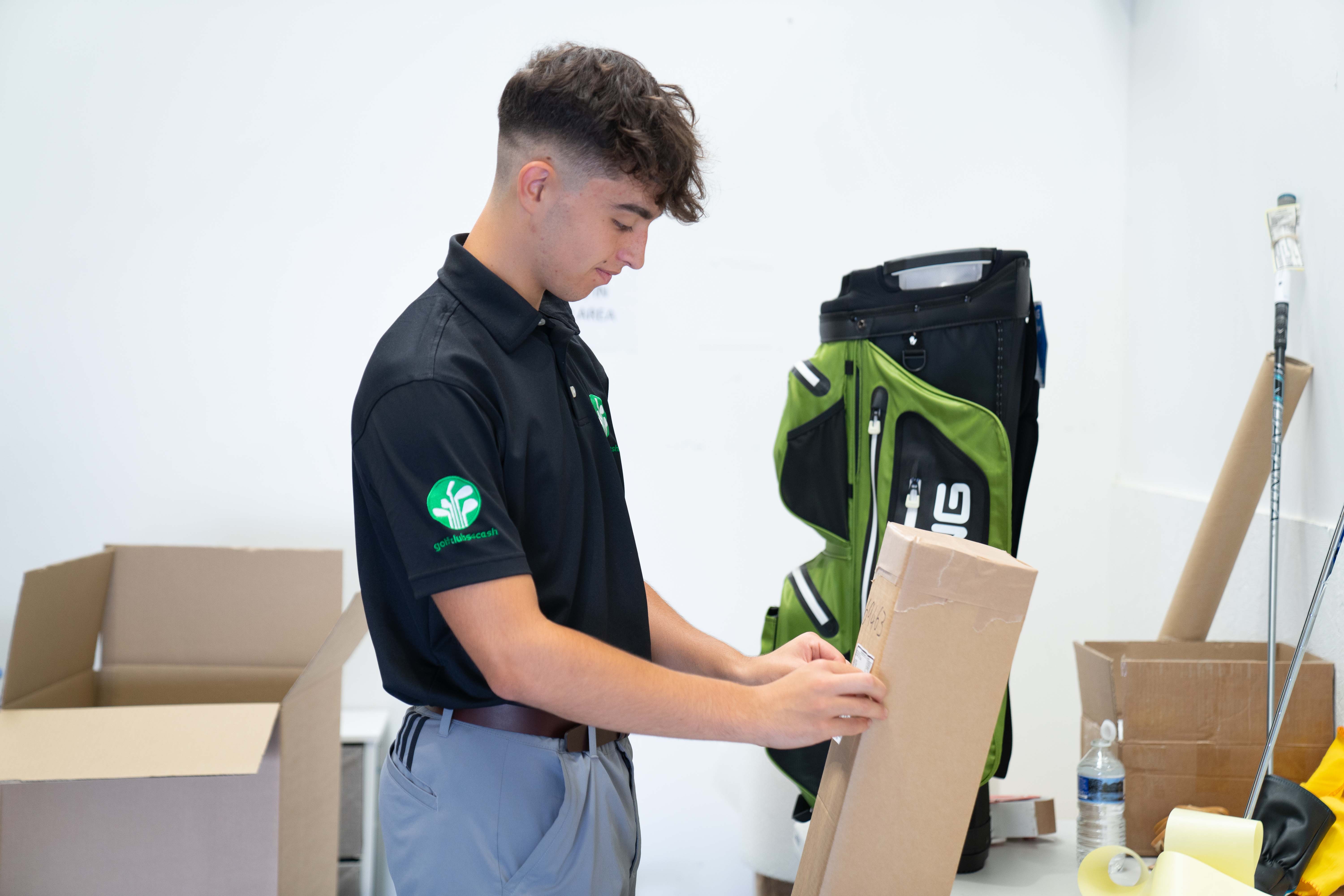
There are a number of other ways that retailers like golfclubs4cash are reducing waste. Carbon-neutral courier guarantee that every parcel that gets delivered is carbon-neutral. No product arrives at or leaves its premises in virgin packaging, and every element, from the box the club travels in, to the tape used to seal it, is made from recycled materials, which can also be reused or repurposed, whilst all plastics have been removed from its packaging.
Whether you’re buying or selling clubs with golfclubs4cash, you can be rest assured that you’re making a sustainable and eco-friendly choice, and doing your bit for the environment. Even if you’ve just ordered a new set of clubs, this is food for thought the next time you come to upgrade your irons or purchase a new driver.

Michael has been with Golf Monthly since 2008. A multimedia journalist, he has also worked for The Football Association, where he created content to support the England football team, The FA Cup, London 2012, and FA Women's Super League. As content editor at Foremost Golf, Michael worked closely with golf's biggest equipment manufacturers and has developed an in-depth knowledge of this side of the industry. He's a regular contributor, covering instruction, equipment, travel and feature content. Michael has interviewed many of the game's biggest stars, including seven World No.1s, and has attended and reported on numerous Major Championships and Ryder Cups around the world. He's a member of Formby Golf Club in Merseyside, UK.
-
 Volvo China Open 2025 Picks, Odds And Predictions
Volvo China Open 2025 Picks, Odds And PredictionsFollowing a break for The Masters, the DP World Tour returns for the final two weeks of its Asian Swing and the Volvo China Open is the penultimate event
By Jonny Leighfield
-
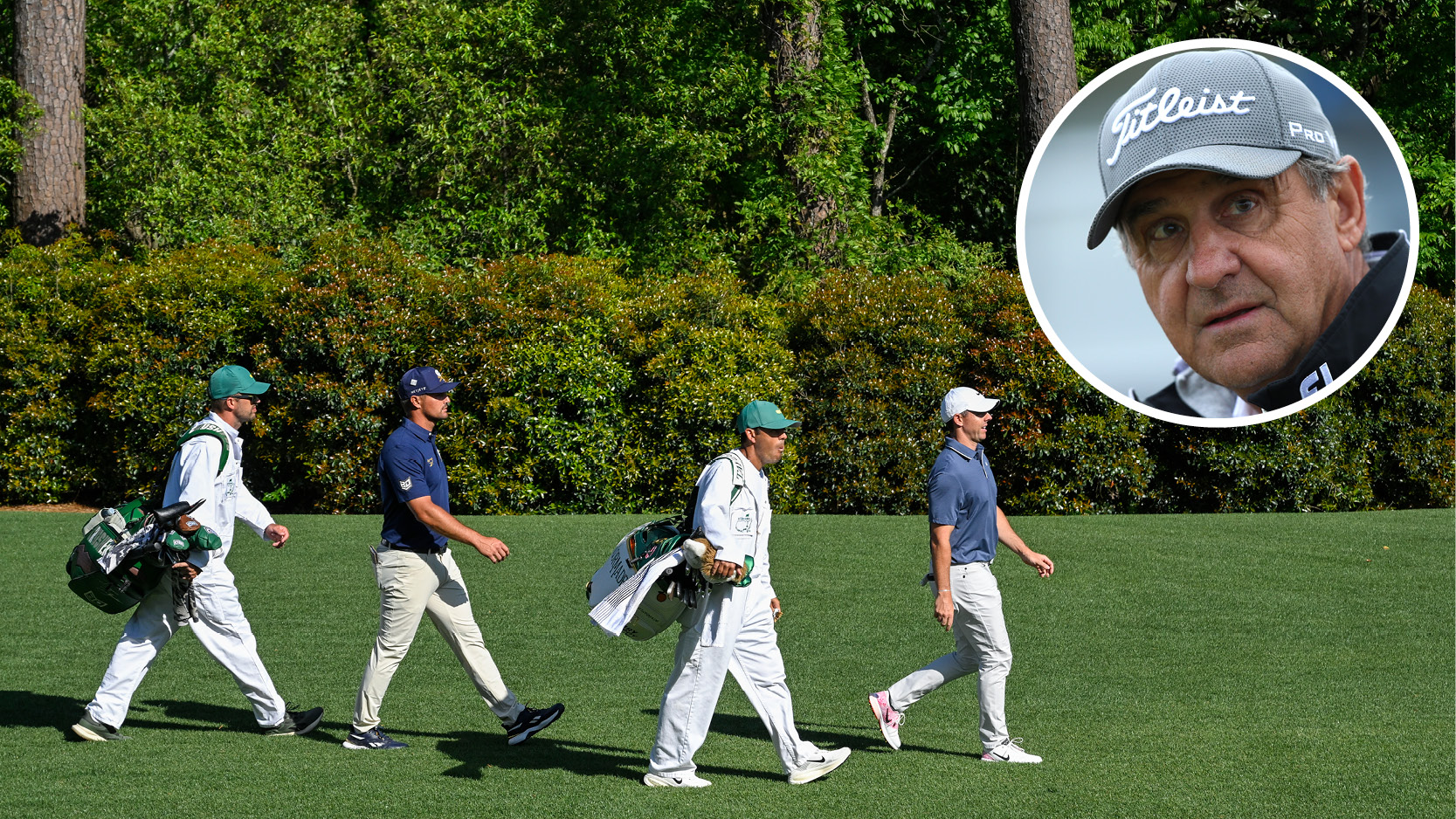 Rory McIlroy's Sports Psychologist Explains Why He 'Didn't Talk' To Bryson DeChambeau In Masters Final Round
Rory McIlroy's Sports Psychologist Explains Why He 'Didn't Talk' To Bryson DeChambeau In Masters Final RoundDeChambeau raised eyebrows at Augusta National when claiming that McIlroy wouldn't engage in conversation during the final round of The Masters
By Jonny Leighfield
-
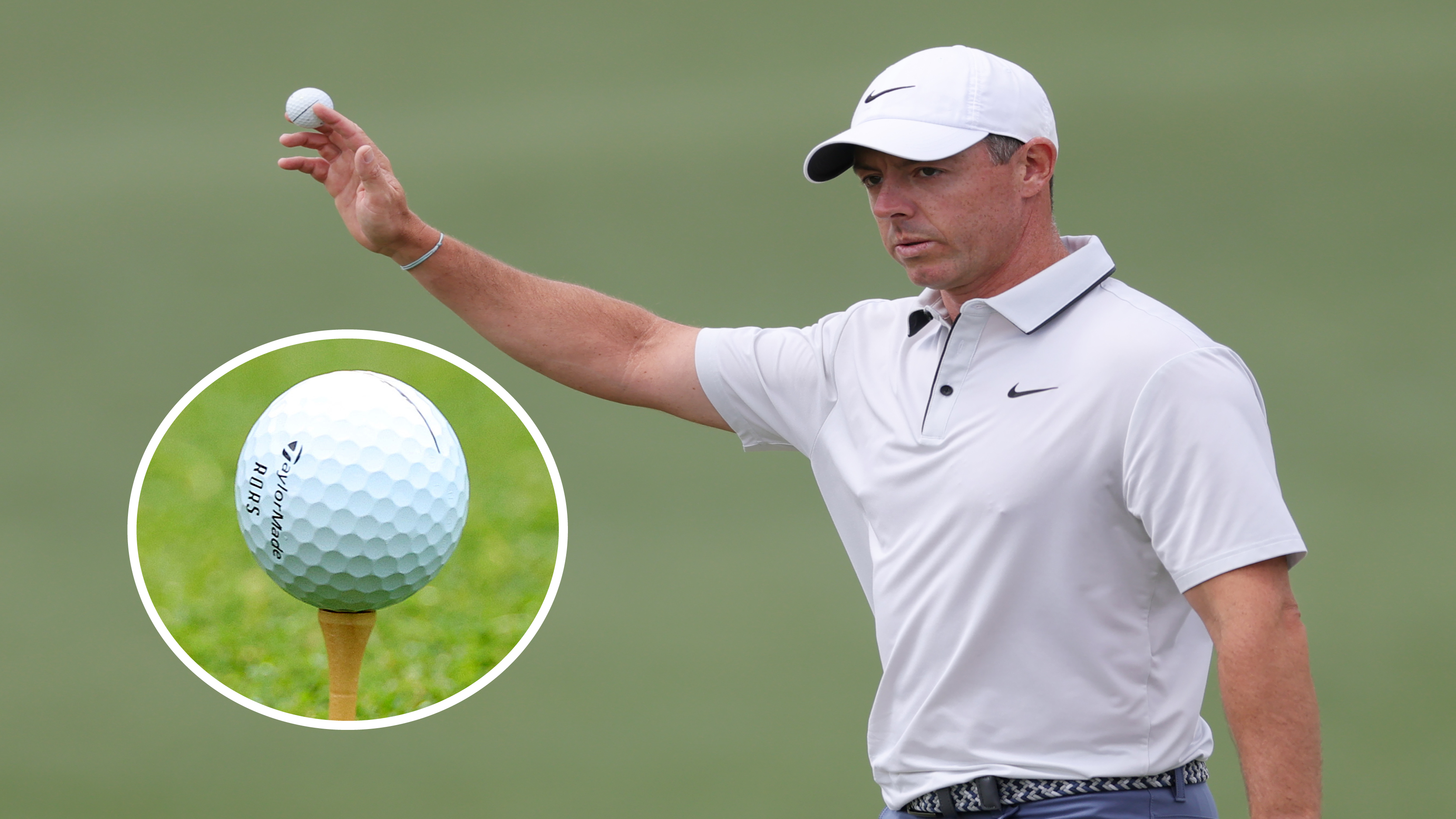 Could This 'Stumbled Upon' Equipment Switch Finally Land Rory McIlroy the Grand Slam?
Could This 'Stumbled Upon' Equipment Switch Finally Land Rory McIlroy the Grand Slam?Rory McIlroy made a golf ball change earlier this season that has reignited his wedge play and it could be about to pay off in the most dramatic possible way…
By Joe Ferguson
-
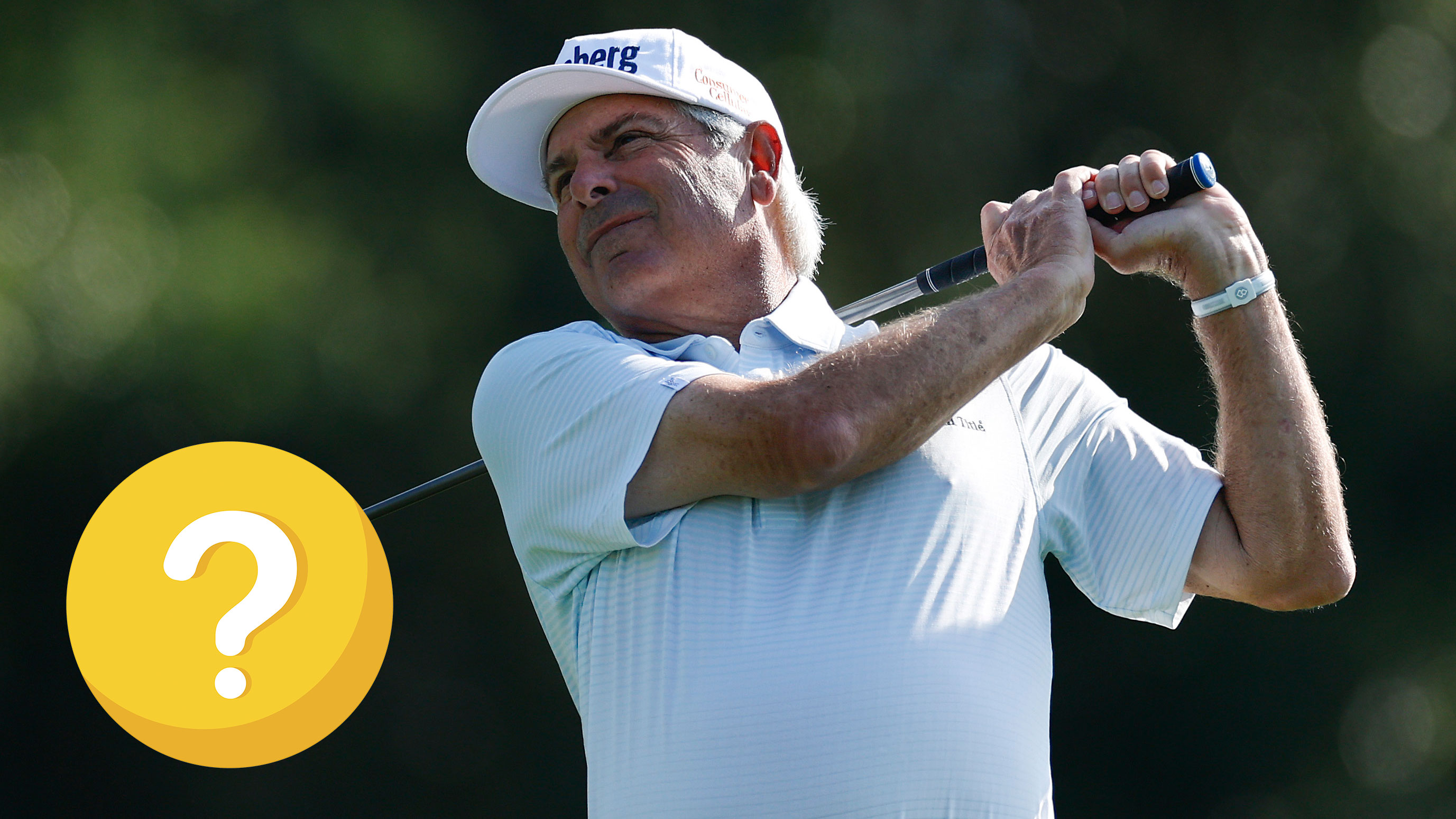 Real Players Use Long Irons, Right? Well, Fred Couples Nearly Made The Cut At The Masters At 65 Years Old, And His Longest Iron Is A…
Real Players Use Long Irons, Right? Well, Fred Couples Nearly Made The Cut At The Masters At 65 Years Old, And His Longest Iron Is A…Both Couples and Bernhard Langer turned back the clock brilliantly over the first two days at Augusta National and did so with some interesting bag setups.
By Joe Ferguson
-
 I Built Tiger Woods’ 2019 Masters Winning Bag From The Second-Hand Market!
I Built Tiger Woods’ 2019 Masters Winning Bag From The Second-Hand Market!PGA Professional Joe Ferguson has been taking a deep dive into Tiger’s bag for arguably the greatest victory of his career…
By Joe Ferguson
-
 How Titleist 'Used Every Tool In The Toolbox' To Enhance The New Pro V1 And Pro V1x Golf Balls
How Titleist 'Used Every Tool In The Toolbox' To Enhance The New Pro V1 And Pro V1x Golf BallsAfter months of testing and tour validation the new Titleist Pro V1 and Pro V1x golf balls are set to launch, but what's new? We explain all
By Sam De'Ath
-
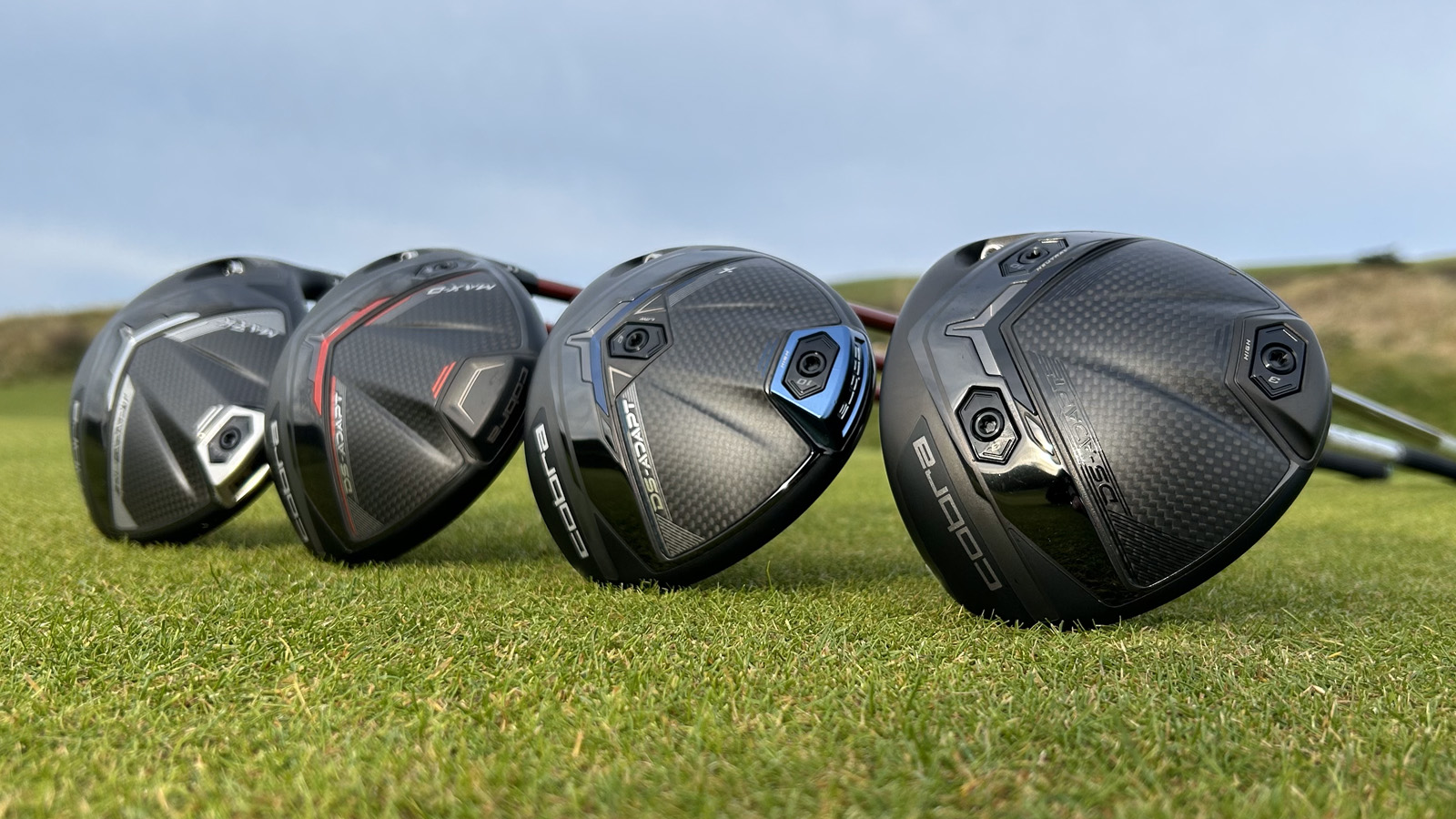 How The New Cobra DS-ADAPT Range Looks To Have Changed Driver Fitting Forever
How The New Cobra DS-ADAPT Range Looks To Have Changed Driver Fitting ForeverWith a revolutionary hosel design and refined aerodynamics, the Cobra DS-ADAPT may just become the standout driver in 2025
By Sam De'Ath
-
 £39 Vs £169 Wedge Test... Surprising Results!
£39 Vs £169 Wedge Test... Surprising Results!In his latest Retro Review, Joe Ferguson sees if the original Vokey wedge picked up for just £39 can compete with the modern equivalent four times the price
By Joe Ferguson
-
 7 Useful Golf Rangefinder Features You Never Knew About
7 Useful Golf Rangefinder Features You Never Knew AboutThink you know everything a rangefinder can do? Think again. We've got seven of the best features currently available on the best modern rangefinders
By Dan Parker
-
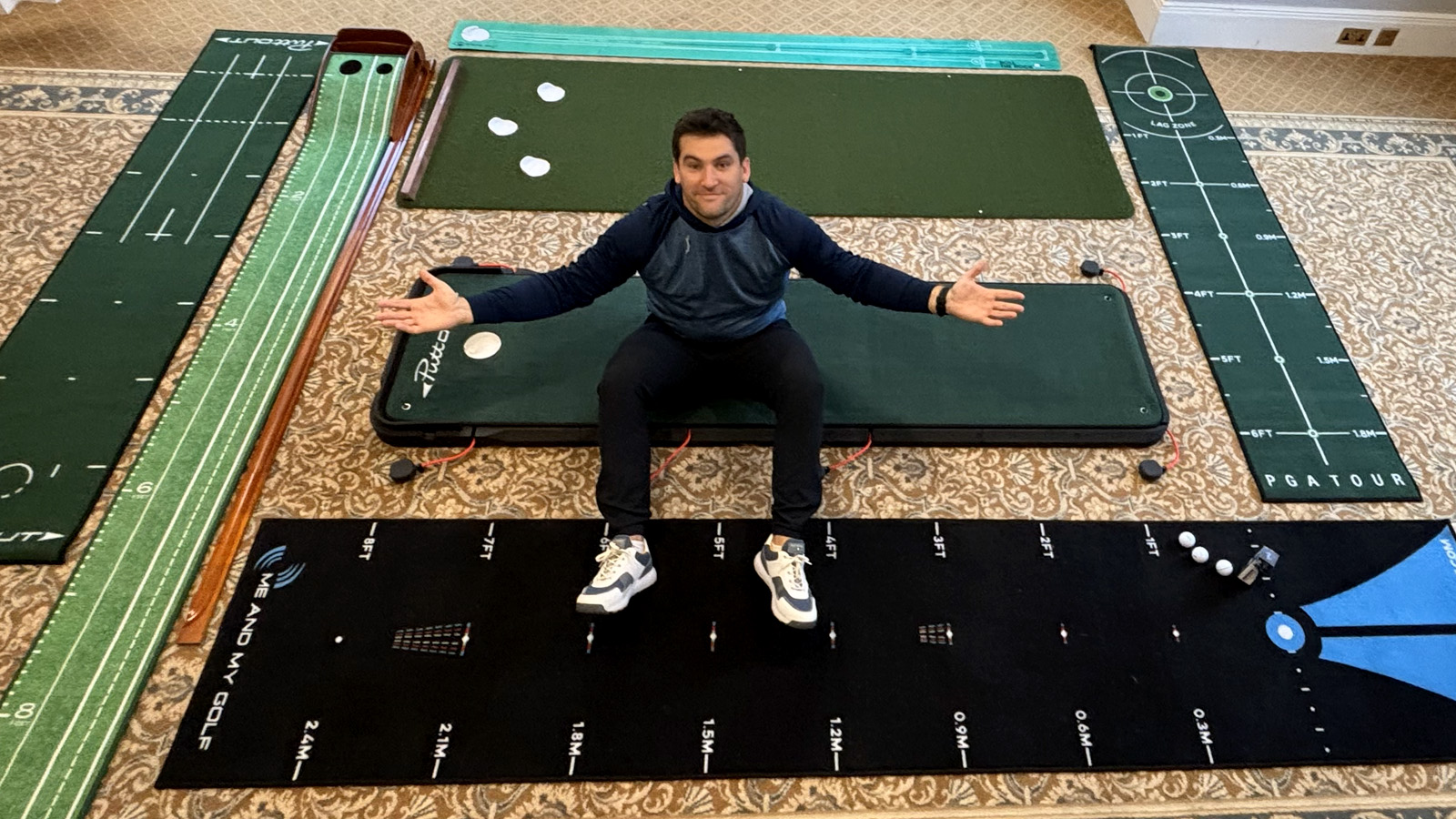 Do Putting Mats Help Improve Your Putting?
Do Putting Mats Help Improve Your Putting?Former professional golfer Sam De’Ath sheds light on whether or not a home putting mat can help improve your performance on the greens
By Sam De'Ath